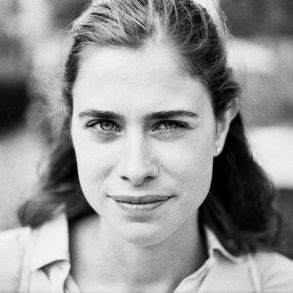Completed PhD Projects
Francesca Brusa

Profile
Francesca Brusa (*1991) is a curator and author in contemporary art. She holds a BA in Economics and Management of Art, Culture and Communication from Università Bocconi in Milano, and achieved a MAS in Curating at ZHdK in Zurich. After having worked with Michelangelo Pistoletto and Bonnie Ora Sherk, she developed an independent, non institutional curatorial practice. She is co funder and curator of international, experimental art spaces like archiveboxmuseum and klarakiss.zipspace. Her research is directed towards the understanding of production processes and hidden labor in contemporary art and society. She is based between Milano and Zürich.
Dissertation project
Unveiling the Invisible.
Artistic production and non-artistic labour in the works of
Maria Eichhorn, Maja Bajevic, and Otobong Nkanga.
This thesis looks at the complex relation between art, work, labour, production, and reproduction to examine how artistic practices embed different forms of labour to comment upon the organisation of production. It does not intend to argue that artists dissolve their work in non-artistic practices; rather, it argues that artistic practices have a dialectical relationship to labour and aim at expanding the boundaries and reach of art by engaging with different forms of labour.
The dissertation is organised in eight chapters. After introducing how the discourse on work and labour has been incorporated in the art field in the first chapter, the second chapter considers how the works of Maja Bajevic (Etui, 2005; Women at Work, 1999-2001; Arts, Crafts, and Facts, 2015)reflect upon the precariousness of labour which have expanded from the domestic sphere to the industrial field. The third chapter outlines the methodological framework which draws a connection between the notions of work, labour, production, and reproduction.
The fourth chapter inquiries into how avant-garde and conceptual artistic practices negotiate, extend, or deny, the autonomy of artistic production in relation to other forms of production through the works of Varvara Stepanova, Bonnie Ora Sherk, and Mierle Laderman Ukeles. The chapter argues that, unlike Stepanova’s practice which dissolved artistic skills in the field of industrial production, Mierle Laderman Ukeles and Bonnie Ora Sherk re-code maintenance and the labour of service as art.
The fifth chapter looks at Maria Eichhorn’s exhibition Money at the Kunsthalle Bern (2001) as a case study in order to delve into the complex relationship between artistic labour and maintenance. The artist directly intervenes in the structural assets of institutions changing them. The chapter argues that Eichhorn’s practice goes beyond the exhibition frame and beyond the materials produced to encompass the entire process of the maintenance of the art institution.
The sixth chapter introduces the works of Santiago Sierra, Ai Wei Wei, Ina Wudkte, kleines Postfordisches Drama, and Rimini Protokoll to reflect about the relationship between artistic practices and cognitive labour. The following chapter looks at the practices of Adrian Paci, Revital Cohen and Tur van Balen, Jens Haaning, Pawel Althamer, and Mika Rottenberg which oppose to the totalising discourse on the becoming cognitive and affective of labour by displaying the invisible, gendered, and racialised structures upon which the global organisation of labour lies.
The last chapter delineates the new tendencies of artistic production towards sustainable production through the analysis of Otobon Nkanga’s work Carved to Flow (2017). It argues how discursive and organic production enters the field of art in order to fulfil the new values of the art public oriented towards social and environmental consciousness. Overall, this dissertation brings an overview of the ways in which artistic practices reflect the actuality of production and consumption contributing to the wider discourse on labour, production, and reproduction.

